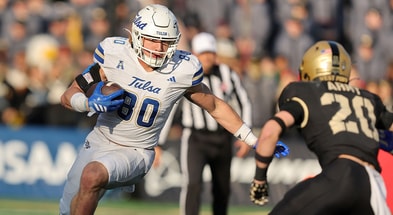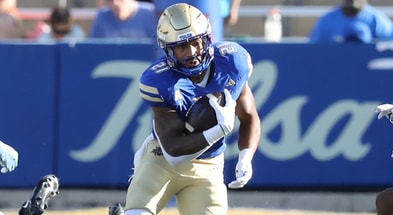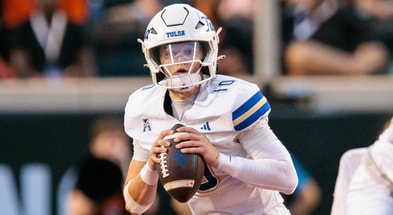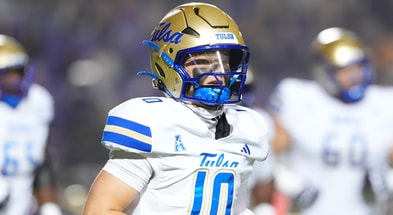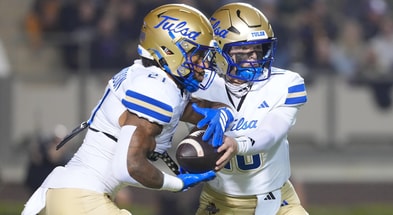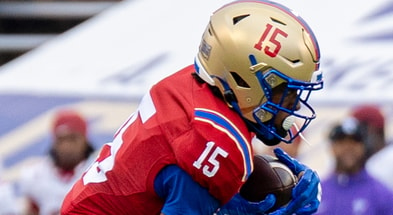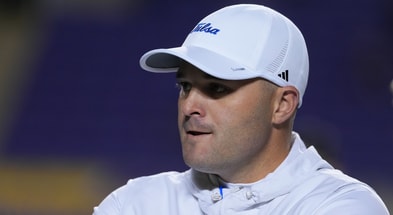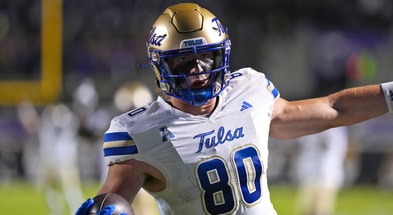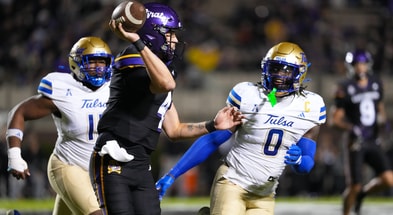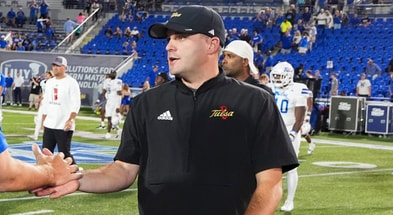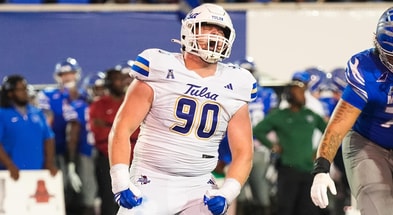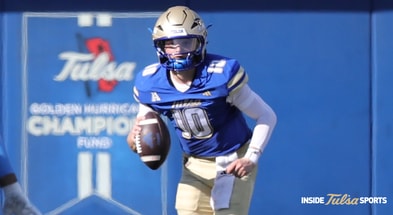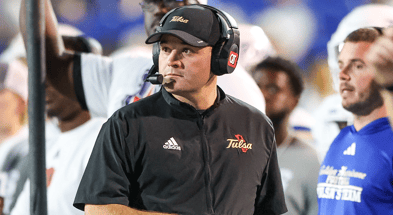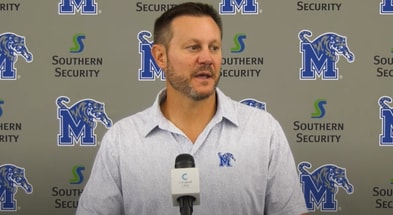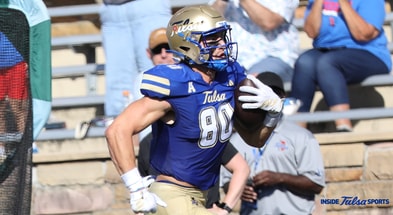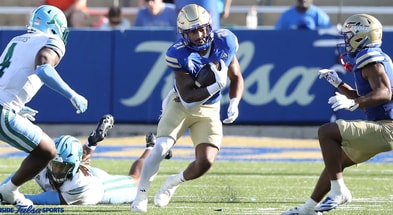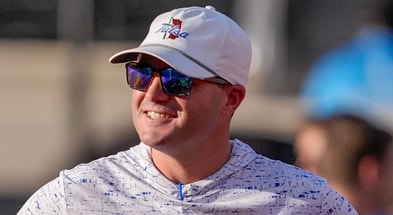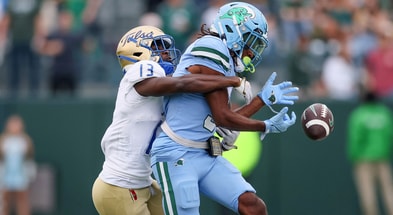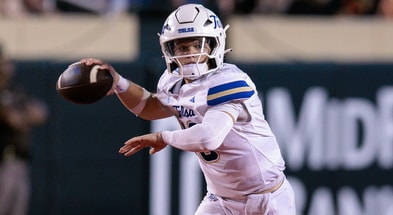Rick Dickson named University of Tulsa Interim President
Rick Dickson’s story is one of deep-rooted loyalty, resilience, and transformative leadership, tracing an extraordinary arc from a student-athlete at the University of Tulsa (TU) to becoming interim president of his alma mater.
“I was raised in Tulsa and developed by UTulsa, where I started my career and grew my family. I am living proof that The University of Tulsa prepares students to achieve their dreams,” Dickson said in a release. “Our student-centered, research-focused mission is more important than ever, and I’m thrilled to join the leadership team that is propelling this university forward.”
A Tulsa native, Dickson’s 32-year career as a collegiate athletic director, spanning TU, Washington State University, and Tulane University, reflects his commitment to student-athletes, institutional growth, and community engagement. His path showcases a blend of athletic passion, administrative acumen, and a steadfast connection to Tulsa, positioning him as a compelling choice for interim president.
“Rick’s dedication to the university is unwavering,” said Marcia MacLeod, chair of The University of Tulsa Board of Trustees. “In times of transition, strong and steady governance is vital, and it’s a hallmark of Rick’s leadership throughout his career. We know his collaborative approach as president will support the broader leadership team that is in place and is an approach that will be welcomed and successful at UTulsa.”
Early Days: A Golden Hurricane on the Field
Born on June 14, 1954, Rick Dickson grew up in Tulsa, Oklahoma, attending Bishop Kelley High School, where he excelled as a multi-sport athlete, earning All-State honors in football and baseball. His athletic prowess led him to the University of Tulsa, where he played as a defensive back for the Golden Hurricane football team from 1972 to 1976. Graduating in 1977 with a bachelor’s degree, Dickson’s ties to TU deepened when he married Brenda, a 1979 TU graduate. Together, they raised four children, embedding their family in the fabric of Tulsa’s community. Dickson’s time as a student-athlete instilled a profound understanding of the balance between academics and athletics, a perspective that would shape his future leadership.
First Stint as TU Athletic Director: Laying the Foundation (1988–1994)
Dickson’s administrative career began unexpectedly at TU when he was appointed interim athletic director in 1988 at the age of 34. With no grand plan, he embraced the role, becoming the permanent athletic director in 1990. His first tenure (1990–1994) was marked by bold moves that elevated TU’s athletic profile. Dickson hired Tubby Smith as men’s basketball coach, a decision that propelled the Golden Hurricane to their first-ever Sweet 16 appearance in the NCAA Tournament. In football, he spearheaded the “Take Tulsa” campaign, securing a 1991 Freedom Bowl berth against San Diego State, a game TU won 28–17, finishing the season 10–2. Dickson also played a pivotal role in TU’s entry into the Western Athletic Conference, ensuring conference stability for the football program. His efforts energized the Tulsa community, with events like the 1991 downtown rally, where 10,000 fans chanted “Take Tulsa,” showcasing his ability to unite university and city.
Washington State University: National Recognition (1994–2000)
In 1994, Dickson left TU to become athletic director at Washington State University (WSU), where he served until 2000. His tenure was defined by significant achievements in gender equity, fundraising, and on-field success. Dickson oversaw a capital campaign that funded scholarships, endowments, an indoor practice facility, and the renovation of Bohler Gymnasium. Under his leadership, WSU achieved its highest-ever Sears Cup ranking, highlighted by the football team’s first Rose Bowl appearance in 67 years in 1998. His focus on gender equity earned national recognition, solidifying his reputation as a forward-thinking administrator. Dickson’s ability to navigate complex issues while fostering athletic and academic excellence prepared him for his next challenge.
Tulane University: Resilience in Crisis (2000–2015)
Dickson’s longest tenure came at Tulane University, where he served as athletic director from 2000 to 2015. His time at Tulane was tested by unprecedented challenges, most notably Hurricane Katrina in 2005, which devastated New Orleans and scattered Tulane’s athletic programs. Dickson’s leadership during this crisis was described as the “Rock of Gibraltar” by Conference USA Commissioner Britton Banowsky. He orchestrated the evacuation of student-athletes and ensured their continued competition by dispersing teams across four campuses in Louisiana and Texas. Despite a shuttered university and no home facilities, Dickson’s mantra — “Carry the Torch, Be the Face and Represent the Name” — rallied Tulane to represent New Orleans and the Gulf region.
Post-Katrina, Dickson rebuilt Tulane’s athletic infrastructure through the Perpetual Wave Campaign, raising $200 million for facilities like Yulman Stadium, the Hertz Center, and Devlin Fieldhouse. His efforts tripled football season ticket sales and restored the program to Division I status with the required 16 sports. Earlier, in 2003, he navigated a board review that threatened to downgrade Tulane to Division III, securing a unanimous resolution to remain Division I. Under his leadership, Tulane teams won nine Conference USA championships and made 15 NCAA postseason appearances, including College World Series trips in 2001 and 2005. Dickson’s resilience and fundraising prowess left a lasting legacy at Tulane.
Return to Tulsa: Second Stint as Athletic Director (2020–2024)
In September 2020, Dickson was called out of retirement to serve as TU’s interim athletic director, replacing Derrick Gragg, who left for an NCAA role. Initially expecting a nine-month stint, Dickson’s tenure extended to nearly four years, culminating in a three-year contract in August 2021. His return came during the COVID-19 pandemic, which strained TU’s athletic budget and operations. Dickson stabilized the department, increasing fundraising by 25% annually and raising the Golden Hurricane Champions Fund to a record $2.6 million in 2023. He also initiated the Case Fund for student-athlete academic enhancement, securing $2 million in its first year.
Dickson’s hires included football coach Kevin Wilson, men’s basketball coach Eric Konkol, and women’s basketball coach Angie Nelp, whose 59–34 record and 2024 conference championship revitalized the program. He oversaw renovations like the F.A. Dry Sports Performance Center and introduced initiatives like the Pathway to Sports Academy and the Annual Hall of Fame Weekend. Under his leadership, TU won 10 American Athletic Conference titles, and student-athletes achieved record-high GPAs. Dickson’s focus on holistic student-athlete development included hiring a full-time mental health specialist and establishing a training table for nutrition. His retirement, effective June 30, 2024, marked the end of a transformative era, with TU President Brad Carson crediting him with saving TU athletics from financial and existential threats.
Interim President: A Natural Progression
With Rick Dickson set to become TU’s interim president, his deep ties to the university, proven leadership, and ability to navigate crises make him a plausible choice. Dickson’s history with TU spans his student-athlete days, two impactful stints as athletic director, and a personal connection as a Tulsa native and alumnus. His experience managing multimillion-dollar budgets, fundraising, and stakeholder relationships at TU, WSU, and Tulane demonstrates the strategic and diplomatic skills needed for university leadership. His handling of crises — Katrina at Tulane and COVID-19 at TU — shows a capacity to lead under pressure, a critical trait for an interim president guiding TU through transitions.
Dickson’s community engagement, from serving on the Greenwood Chamber of Commerce Advisory Board to his role as CFP New Orleans ambassador, underscores his ability to bridge institutional and civic goals. Former TU President Brad Carson praised Dickson’s “deep understanding of collegiate athletics and commitment to our university,” suggesting trust in his leadership at the highest levels. While Dickson has expressed gratitude for his career and a desire to spend time with his eight grandchildren, his pattern of answering TU’s calls — first in 1988 and again in 2020 — has been impressive.
Legacy and Future
Rick Dickson’s journey from a TU football player to a transformative athletic director reflects a career defined by service, resilience, and impact. His contributions at TU, Washington State, and Tulane have left athletic programs stronger, student-athletes better supported, and communities more connected. As TU navigates its future, Dickson’s legacy as a stabilizer and visionary positions him as a natural fit for interim president. Dickson’s love for Tulsa and TU will endure in this new role.
